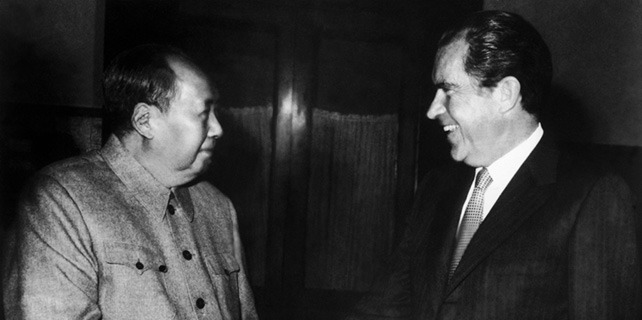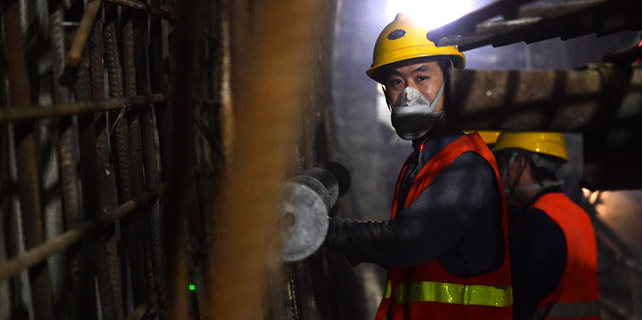Slight decline in M&A activity is likely
Editor's note: This is the seventh story in a series of previews on the two sessions-the annual gatherings of the nation's top legislature and its top body of political advisers. The sessions will start later this week.
China's outbound mergers and acquisitions are likely to decline slightly this year, due to the changing global environment, experts said.
Chinese companies' interest in going overseas or acquiring companies outside of China is still very high, but the overall number and value of deals will be reduced, due to Western countries' changing attitudes toward Chinese investment, said Edward Tse, founder and CEO of Gao Feng Advisory Co, a global strategy and management consultant.
"Chinese companies' overseas investment will certainly be lower than the peak level in 2016, but I don't think there is going to be dramatic drop," he said.
Last year, China's outbound M&A surged by 142 percent in volume and by 246 percent in value, to a record $221 billion, according to a recent report by PricewaterhouseCoopers.
A report by Rhodium Group said the European Union continues to be a favorite destination of Chinese investors, with more than 35 billion euros ($36.9 billion) of outward foreign direct investment transactions last year-an increase of 77 percent from 2015.
Germany and the United Kingdom accounted for more than half of total incoming Chinese investment last year.
The United States was the largest recipient of Chinese outbound foreign direct investment last year, with $45.6 billion in completed acquisitions and greenfield investments. However, President Donald Trump has said the US will take a tougher stance toward Chinese companies.
Joerg Wuttke, president of the European Union Chamber of Commerce in China, said that to date, EU authorities have not rejected any major investment in the EU. He said the EU is becoming increasingly worried about state intervention in international investments in its economy, and rising populism is putting pressure on decision-makers.
He said the EU member states should remain open and make sure that international investors in the EU have a predictable and transparent investment environment.
"For Chinese companies, it is important to see that their investment ideas in Europe are basically accepted and are granted in the right and proper legal setting," he said.
Hu Tianlong, a research fellow with the International Monetary Institute of Renmin University of China, said M&A deals in technology industries worldwide will be more difficult for Chinese companies this year.
Private enterprises increasingly active in mergers and acquisitions
Privately owned Chinese enterprises have been increasingly active in outbound mergers and acquisitions.The value of private enterprises' outbound M&A exceeded that of State-owned enterprises for the first time last year, according to a recent report.
Private enterprises' outbound M&A volume in 2016 was about three times that of the previous year. Its value was $116.3 billion, which was almost double that of SOEs, said the report by consulting firm PricewaterhouseCoopers.
Moreover, Chinese private companies tend to gain advanced technologies, management skills, brands and overseas markets through outbound M&A, and are more diversified in the areas of interest, said Wang Chaoyong, founder and CEO of China Equity Group.
"While SOEs mostly buy overseas companies that are in the traditional industries, such as manufacturing, private enterprises also pay attention to a wider range of sectors that would cater to the needs of China's middle class, such as the movie, sports and healthcare industries," he said.









